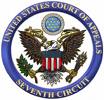Seventh Circuit Week in Review, Part I: Search & Seizure, Interrogation, and Sentencing
 The Seventh Circuit had a busy week, with seven new opinions in criminal cases. Two dealt with the same question of what constitutes a criminal attempt to entice a minor to engage in sexual activity. I’ll discuss those two opinions in a separate post. The remaining five, considered below, addressed a diverse range of issues relating to Fourth Amendment rights, police interrogation, and the application of the federal sentencing guidelines.
The Seventh Circuit had a busy week, with seven new opinions in criminal cases. Two dealt with the same question of what constitutes a criminal attempt to entice a minor to engage in sexual activity. I’ll discuss those two opinions in a separate post. The remaining five, considered below, addressed a diverse range of issues relating to Fourth Amendment rights, police interrogation, and the application of the federal sentencing guidelines.
In United States v. Budd (No. 08-1319), the defendant was convicted of possessing child pornography on his home computers. After Budd left one of his computers at a shop for repairs, a shop employee found a file titled, “A Three Year Old Being Raped,” and reported the matter to police. An officer took custody of the computer, but police otherwise did almost nothing on the case for the next month. Eventually, Budd contacted the police department himself to report what he believed to be the theft of his computer by the repair shop. Budd’s phone call led to his interrogation at the police station, a search of his apartment (where another computer was found), and (finally) a search warrant for the computers. After he was charged, Budd moved to suppress incriminating statements he made to police, as well as images found on the computers, contending that these were all “fruits of the poisonous tree” of the illegal seizure of the first computer. The district court denied the motion.


